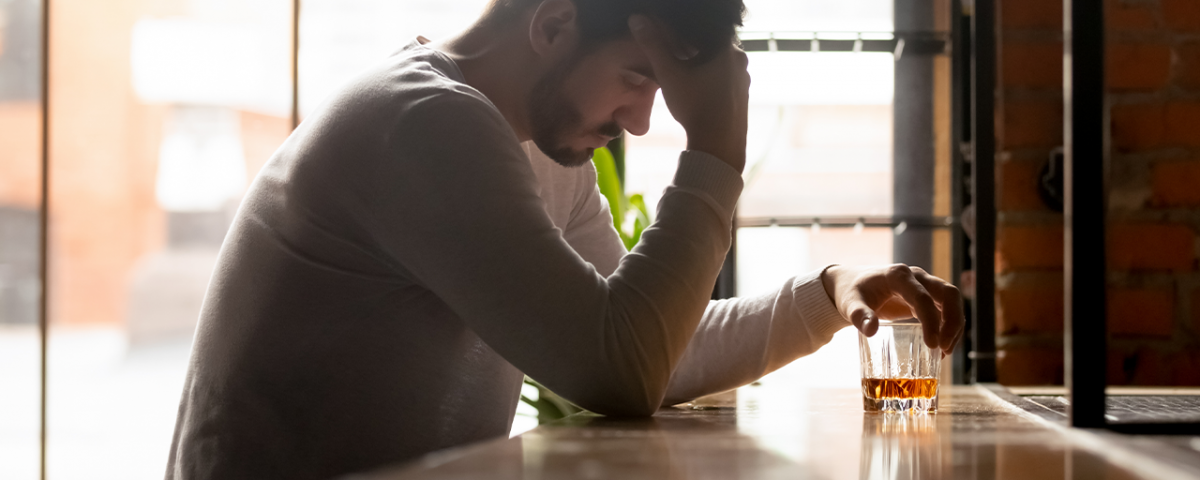Grief is defined as deep sorrow, which is especially common after the loss of a loved one. Grief can make it difficult for a person to find pleasure in anything. Someone who is grieving may feel as if the world has stopped spinning or like they’re floating through life without feeling. While some come to terms with their grief and move on fairly quickly, others will look for any way to cope, including drinking. Our Southern California rehab is looking into the relationship between grief and alcohol and why you shouldn’t try to drink the pain away.
The Relationship Between Grief and Alcohol
Alcohol and grief have a tragic relationship. Especially when a loved one passes away, the aftermath can be devastating. Parents, children, and spouses can all be deeply impacted by the death of someone they care about.
Grief is usually a response to a sudden and tragic loss or change in a person’s life. It can often be overwhelming, especially when the individual has lost someone who played an integral role in their life.
Grief may also occur as a result of unemployment, the loss of one’s home, and in other situations that can cause a tragic change in a person’s life. So how do people respond to these changes?
While some can cope with grief in healthy ways, others may turn to alcohol in an attempt to numb their pain. Unfortunately, alcohol seems to be everywhere in our world. Between bars, liquor stores, and parties, we’re constantly surrounded by it.
Even at funerals, it’s common to toast to the recently deceased with alcohol as a form of respect. However, this could be a stepping stone for a larger issue.
Grieving and alcohol abuse are linked in that many people use alcohol to cope with their feelings. Alcohol affects the brain by stimulating the release of GABA, an inhibitory neurotransmitter that produces sedation and relaxation.
When consumed heavily, alcohol can lead to a sedative sort of “high” or “buzz,” which may be especially attractive to someone who wants to numb the emotional pain they’re experiencing. However, leaning on drugs or alcohol for emotional support often creates a dangerous pattern of behavior that could lead to abuse.
Signs of Grief and Alcoholism
Grief often occurs in stages. The person can’t control the process, but it’s helpful to understand the reasons behind these feelings as well as how to identify grief in a loved one. Though these stages and symptoms may fluctuate depending on the person, the general stages and signs of grief include:
- Denial: When you first learn of or experience a loss, it’s normal to think, “This isn’t happening.” Shock, numbness, and denial are all common emotions that may fluctuate as you’re initially coming to terms with this shift in your life. This is a temporary defense mechanism set in place for dealing with the initial shock of the event.
- Anger: As reality sets in and it hits you, you’re faced with the pain of loss. Anger is a common reaction to this realization, as well as frustration and helplessness. It’s common for people who are grieving to feel irritated and angry, which they may take out on others. It’s also natural to be angry at the person who passed away for leaving you.
- Bargaining: This is the “what if” stage of grief, during which you may think back on all the things you could’ve done differently to have possibly prevented the person’s death.
- Depression: Eventually, the sadness sets in, during which the person begins to understand the loss and its effects on their life. Signs of depression include excessive crying, problems sleeping or sleeping too much, and a decreased or increased appetite. The individual may also feel overwhelmed, regretful, and lonely.
- Acceptance: In this final stage of grief, the person accepts the reality of the situation and their loss. At this point, while the person may still feel sad, they’re able to move on with their life.
However, processing and recovering from grief takes time, and using alcohol to deal with emotions rather than allowing yourself to go through the stages and feel everything can prevent healing and present a new problem.
If you know someone who’s coping with grief and drinking to cope with their feelings, below are some signs of alcoholism to be mindful of:
- Being secretive about the extent of their alcohol use
- Denying the severity of their alcohol use
- Engaging in risky behavior while under the influence of alcohol, such as drunk driving
- Impaired judgment and memory
- Irritable or moody when alcohol isn’t available
- Neglecting work, family, and their social life to drink
- Poor coordination
- Slurred speech
- Wanting to stop drinking but not managing to do so
- Yellowing of the skin and whites of the eyes (signs of liver disease)
Alcohol abuse can have a detrimental impact on an individual’s physical and mental health, making the grieving process more distressing. Additionally, relying on other sources to cope with grief rather than facing and processing it head-on can prevent the person from healing entirely.
If you or someone you care about is addicted to drugs or alcohol, our California detox center can help. For chronic drinkers, our alcohol detox program addresses withdrawal symptoms to help them avoid relapse and make the early stage of recovery as smooth as possible.
In addition to detox, our alcohol addiction treatment also incorporates individual and group therapy sessions with our licensed therapists to help clients change their lives for their sobriety. From relapse prevention techniques to creating sober habits, our specialists stick with our clients through every step.
For more information about our California addiction treatment, call Banyan Treatment Centers Palm Springs at 888-280-4763.
Related Reading:









